Real Estate Tokenization as a Business
Real estate tokenization turns property into digital shares and opens global investing. Learn how platforms make money, from listing and trading fees to white-label licensing and Tokenization-as-a-Service, and why this model grows fast in 2025.

Real estate tokenization turns property rights into digital shares on a blockchain. It makes investing simple, fast, and global. People can buy small parts of buildings, hotels, or land. Owners can raise money without selling 100% of the asset. This model grows each year because it lowers the entry barrier for investors and adds transparency for everyone involved.
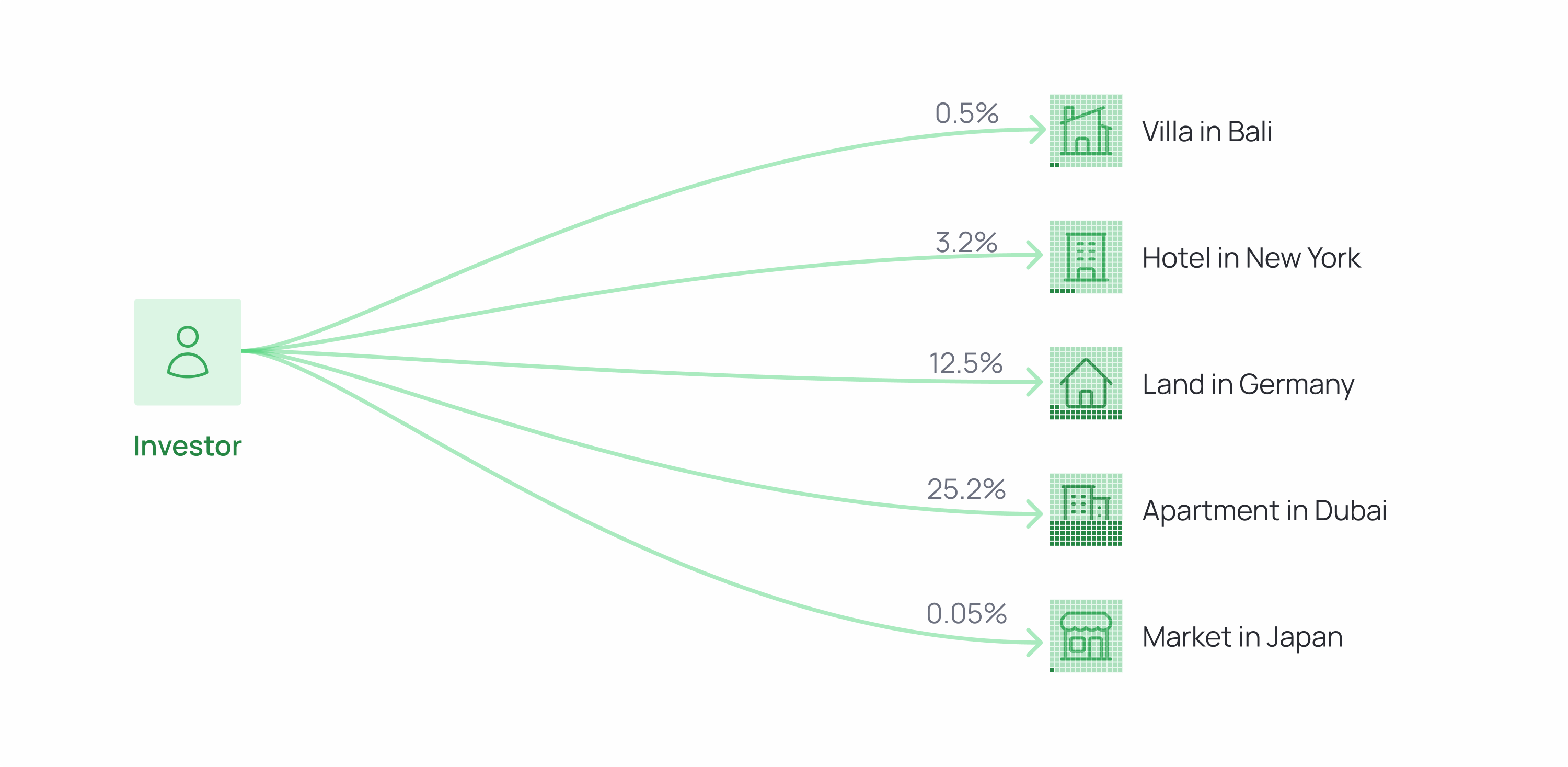
This is why many entrepreneurs are launching their own tokenization platforms. A platform is not the property itself; it is the service layer that connects owners and investors under clear rules, KYC/AML, and smart contracts. According to Deloitte research, tokenized real-world assets could reach $4 trillion in the next years, which shows strong potential for this business model.
Table of Contents
- How Does a Tokenization Business Work?
- Examples of Successful Tokenization Platforms
- How to Build Your Own Real Estate Tokenization Platform
- Opportunities for Entrepreneurs, Small Firms, and Developers
- How Tokenizer.Estate Can Help
- Conclusion
How Does a Tokenization Business Work?
A real estate tokenization platform is an online marketplace where property owners can list their assets, investors can buy tokens, and trades occur on a regulated blockchain. Running such a platform can become a profitable business when it offers the right services and charges fair fees.
Revenue Models for Platform Owners
A 2025 guide on real estate tokenization development describes several monetization models for these platforms:

1. Token Listing Fees
Platforms can charge a fixed fee to list a property as a tokenized offering. This gives you upfront revenue each time a new project goes live. It fits marketplaces that work with many owners and developers and want a clear, simple price. You can show what the fee covers: compliance check, listing page, docs preview, and launch support. See how industry guides describe listing charges.
2. Transaction or Trading Fees
You can earn a small percentage on every token purchase or sale. As trading volume grows, these fees become a recurring and almost passive income stream. This works best when you have a secondary market or an in-app trading module with wallets. Industry explainers highlight transaction fees as a core revenue line.
3. Asset Management Fees
Investors value support after the sale. You can charge ongoing fees for portfolio tracking, performance reports, tax and compliance documents, and investor updates. This creates stable income and builds trust because users see data and payouts in one place. Strong reporting and smooth communication make investors stay longer and reinvest in new projects.
4. Subscription Plans
Offer membership tiers (basic, premium, enterprise). Higher tiers unlock analytics, custom token rules, API access, or marketing tools. Subscriptions add predictable MRR and help you serve different client sizes. Clear value for each level makes customers upgrade naturally as their portfolio and needs expand.
5. White-Label Licensing
Some clients want “their own” platform. You can license your tech as white-label with a setup fee plus monthly or annual license. This is a high-margin B2B stream because one codebase serves many brands. White-label clients expand your reach, bringing steady recurring income with minimal additional development.
6. Tokenization as a Service (TaaS)
Offer a full package for companies that do not want to build: legal setup, technical launch, KYC/AML, and marketing. Price it as a fixed project or a staged bundle. Even a few projects per year can bring strong returns because the ticket size is higher. This approach positions your platform as a one-stop provider for high-value corporate clients.
7. Advertisement and Promotion
With growing traffic, sell sponsored listings, homepage banners, or newsletter spots to owners, lenders, or property managers. This works especially well for a marketplace model with many active deals. Advertising brings an additional, flexible revenue stream and increases visibility for both your platform and listed projects.
8. Structuring & Advisory
Some projects are complex: mixed-use assets, phased development, cross-border owners, or unique cash-flow waterfalls. You can sell advisory hours or fixed-fee playbooks. This includes deal structuring, token economics, vesting rules, governance, and exit strategy. Strong advisory increases trust and reduces legal and investor questions later.
Running a real estate tokenization platform gives entrepreneurs a strong and flexible business model. Each feature — from listings and subscriptions to trading and advisory — can bring profit on its own, but together they create a complete ecosystem where income grows with every new client. The platform becomes more valuable over time, because every project, investor, and transaction adds data, trust, and visibility. Once the system is built, it can scale almost automatically, bringing steady recurring revenue and positioning you as a key player in the new digital real estate market.
Examples of Successful Tokenization Platforms
RealT
RealT is one of the pioneers in residential rental tokenization in the United States. It sells tokens for around US$50, and users can invest in properties with regular rental income. A case study of four RealT properties shows that a US$10,000 investment could generate about US$1,900 profit over two years, representing a 9.5 percent annual yield. The platform makes money by charging service fees and handling property management, while investors receive their share of rent.
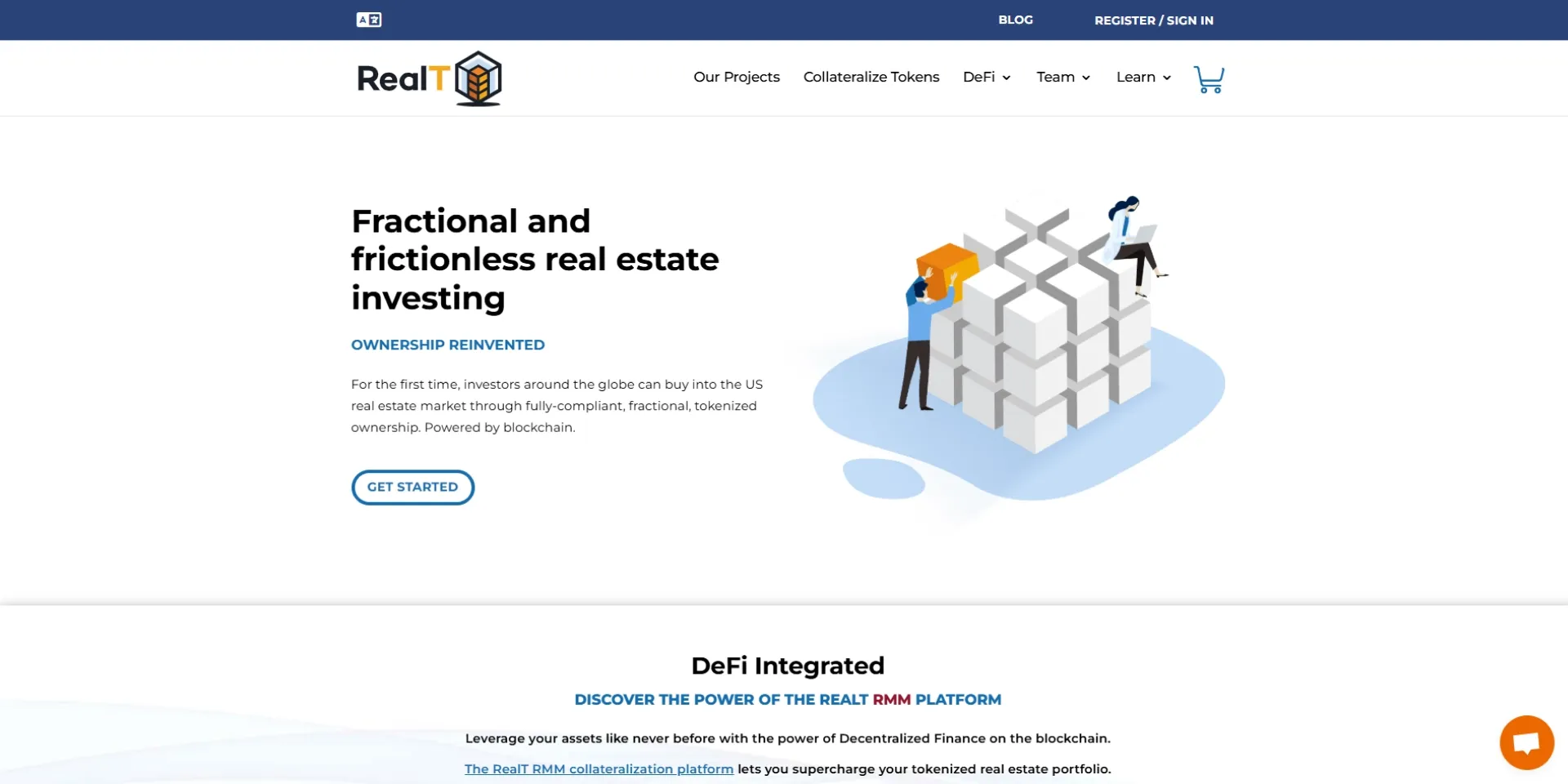
Lofty AI
Lofty offers fractional ownership of U.S. rental properties. Tokens start at about US$50, and investors receive daily rental income. A sample calculation suggests an 11.67 percent annual return. Lofty also gives token holders governance rights via a decentralized autonomous organization (DAO) structure. For the platform operator, revenue comes from listing fees, token sales, and management charges.
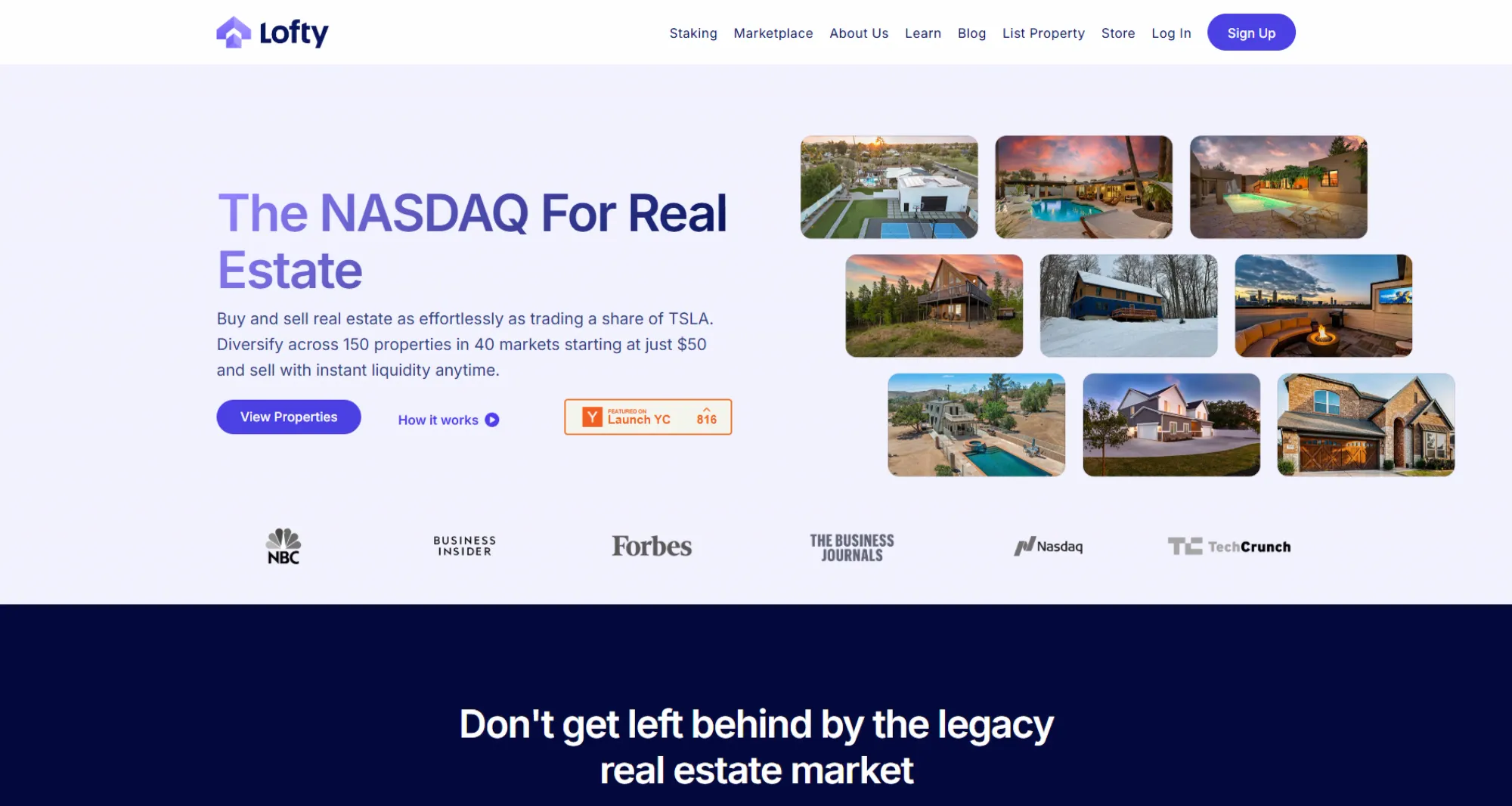
Elevated Returns and AspenCoin
In 2018 Elevated Returns tokenized the St. Regis Aspen Resort in Colorado. The project raised US$18 million and issued AspenCoin tokens. These tokens began trading on the tZero exchange in 2020 and increased in value by almost 30 percent within 18 months. This case shows that regulated token offerings can attract significant capital and deliver appreciation, while the platform earns fees from issuance and trading.
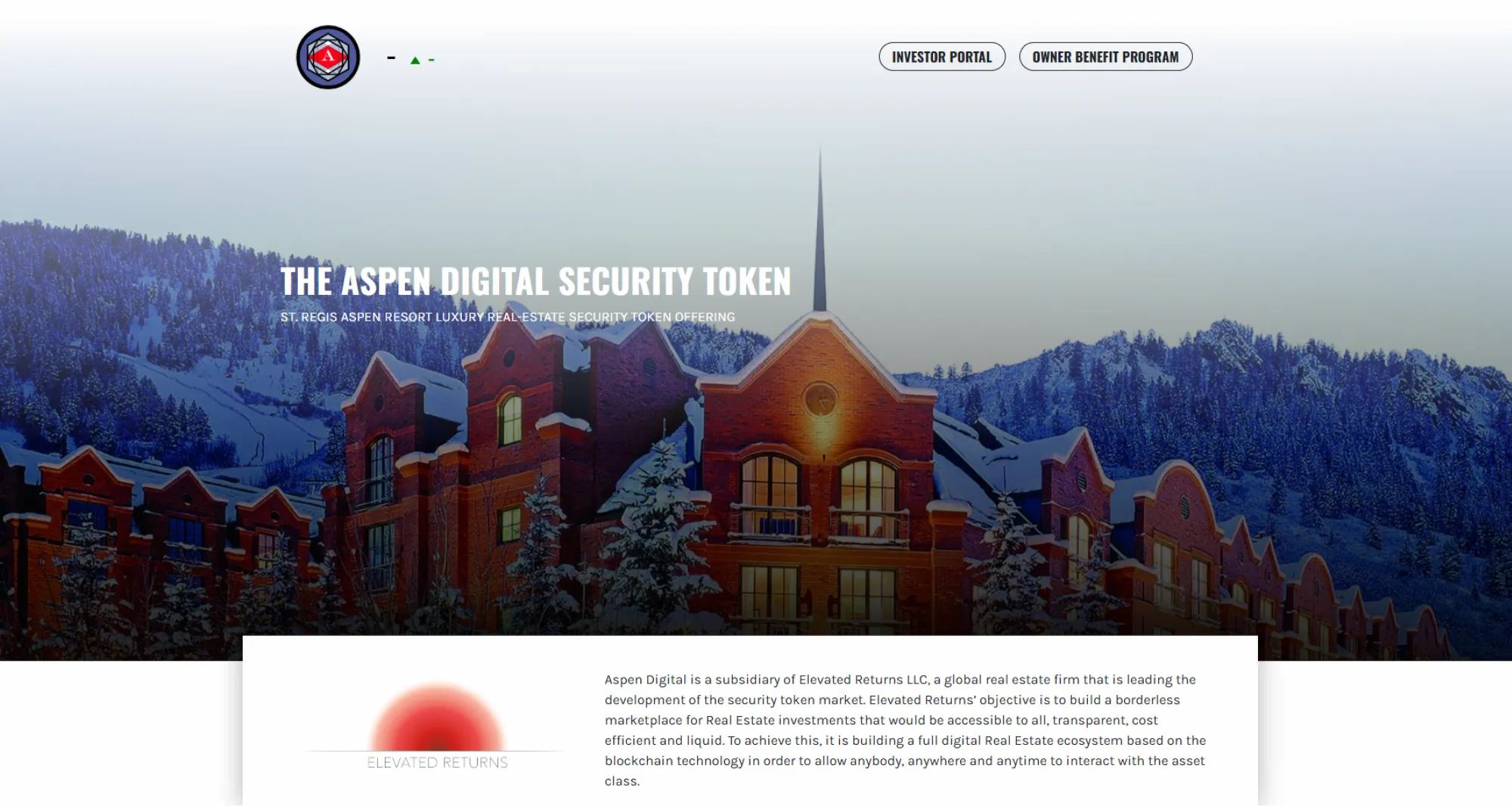
Binaryx
Binaryx is a Europe‑based platform offering curated real estate investments with a minimum ticket around US$500. It emphasises transparency and handles all property management, so investors have a hands‑off experience. Binaryx also sells tokens for development projects, offering returns as high as 16.3 percent annual rental income or 17 percent ROI over 11 months. Platform revenues come from service fees and profit sharing.
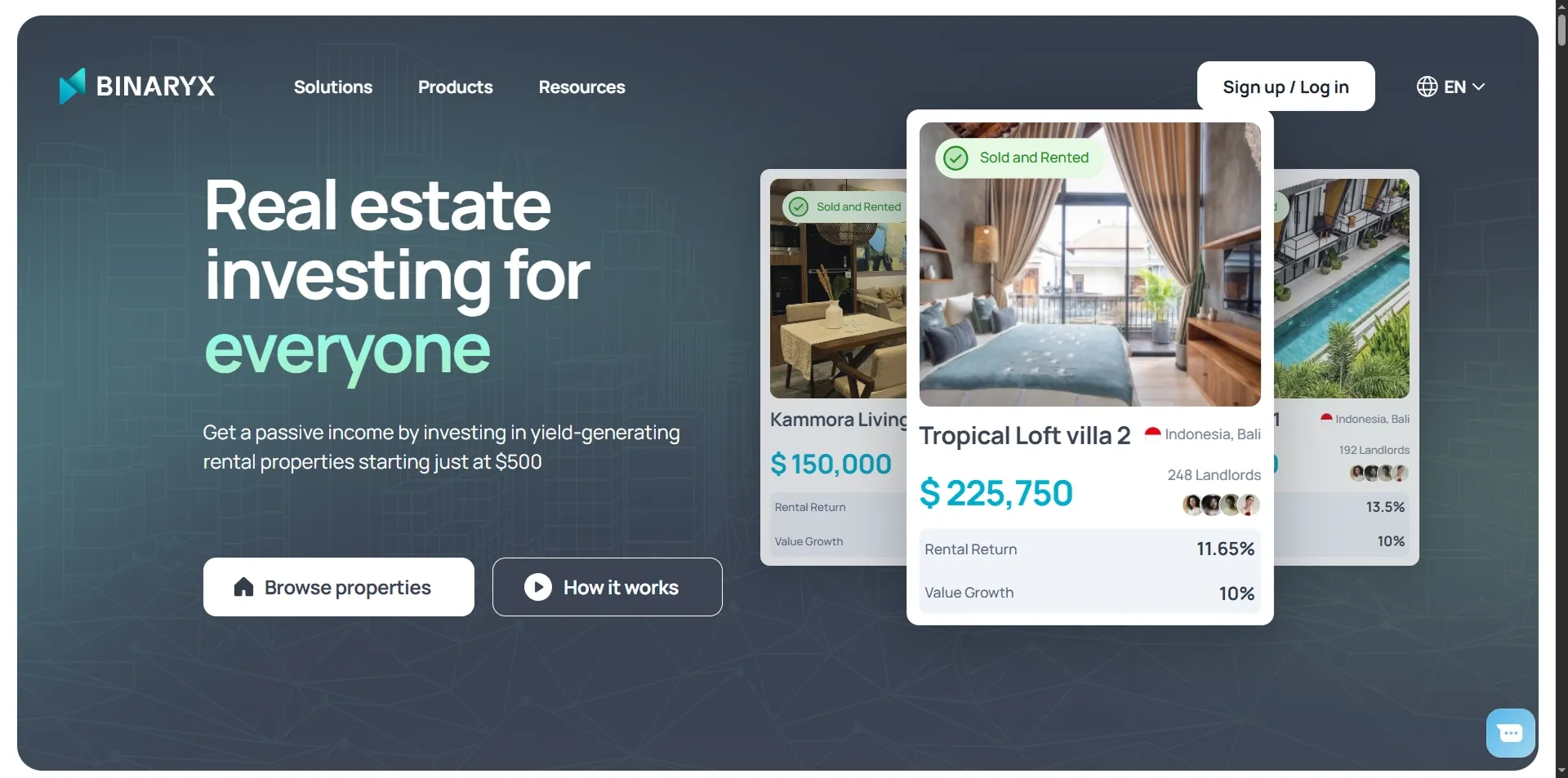
HoneyBricks and Estate Protocol
HoneyBricks targets institutional‑grade commercial real estate. It issues security tokens on Ethereum and allows investors to borrow against tokens. Estate Protocol is a newer platform focusing on Dubai’s market; it uses a Layer‑2 solution to lower transaction costs and sells tokens starting around US$50. Both platforms charge listing and transaction fees.
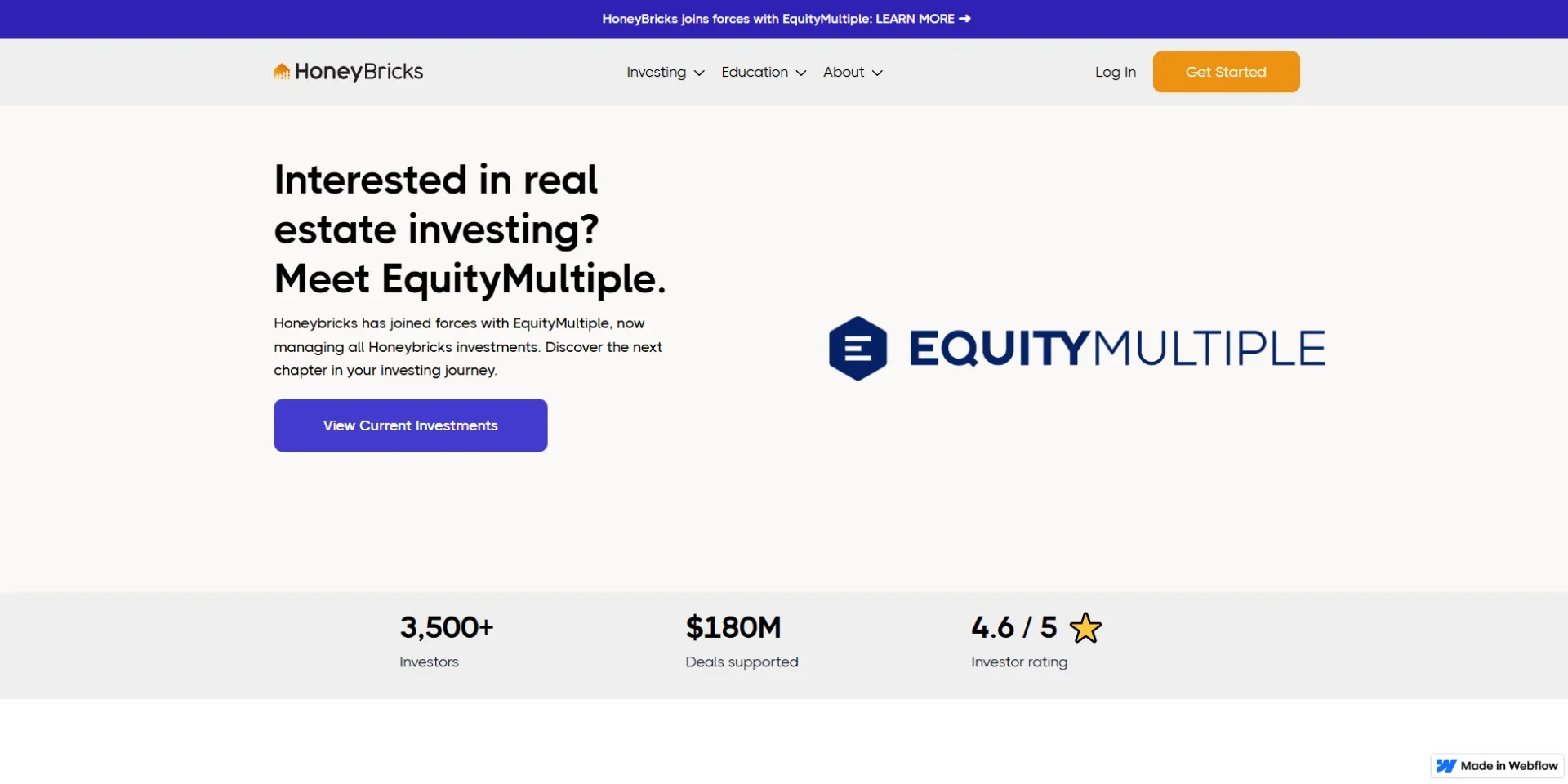
Other Notable Trends
Fractional ownership appeals to younger demographics. Lofty noted that 60 percent of fractional investors are under 40. Investors also value sustainability; commercial tenants are willing to pay up to 20 percent more for WELL‑certified spaces, and LEED‑certified multifamily buildings command about a 9 percent rent premium while green office properties secure 31 percent higher rents. These premium trends show that investors are prepared to pay extra for qualities they value, whether it is sustainability or easy access via tokenization.
How to Build Your Own Real Estate Tokenization Platform
Starting a tokenization business involves both technical and business steps. Here is a simple roadmap:

- Select the asset and jurisdiction. Choose the property type (residential, commercial, land) and ensure legal compliance. Engage legal experts to structure the token as a security or utility token.
- Create a legal entity and smart contracts. Draft offering documents, form a special‑purpose vehicle, and develop smart contracts that represent ownership and handle revenue distribution. Trusted platforms often work with experienced developers to ensure security and compliance.
- Develop or license a platform. Decide whether to build custom software or use a white‑label solution. A minimal platform may cost US$15,000 to US$25,000, while a fully customized platform can require more. Licensing existing technology can cut costs and speed up deployment.
- List the property and market the offering. Create a landing page for the property, set the total number of tokens and price, and advertise to potential investors. Platforms like Tokenizer.Estate provide marketing and investor onboarding tools.
- Distribute tokens and manage investors. After regulatory approval, sell tokens to investors. Smart contracts automatically record ownership and distribute rental income. The platform must handle Know‑Your‑Customer (KYC) and Anti‑Money‑Laundering (AML) checks.
- Enable secondary trading. A built‑in exchange or integration with external marketplaces allows investors to trade tokens, providing liquidity. Each trade generates fees for the platform.
Running a tokenization platform is not only about technology. Entrepreneurs must offer transparent reporting, responsive customer service, and careful compliance management. This builds trust and encourages repeat investment.
Opportunities for Entrepreneurs, Small Firms, and Developers

Tokenization lowers barriers for both investors and platform owners. A small tech firm can enter the market by offering TaaS packages or white‑label products to real estate companies. Such businesses can focus on legal structuring, user experience, or marketing. Because many property owners want to unlock capital quickly, there is room for specialized companies that handle specific parts of the process.
The market numbers show strong potential: with 27 percent annual growth projected for tokenized real estate and HNW investors willing to pay higher fees for access, there is clear demand. In addition, about 80 percent of HNW investors and two‑thirds of institutional investors already invest or plan to invest in tokenized assets. This broad investor base suggests robust future liquidity and deeper secondary markets.
If you already own real estate or develop new projects, tokenization gives you a completely new way to grow your business without selling everything. Instead of giving your property to one buyer, you can divide it into digital shares and sell only part of it. This helps you raise capital faster, keep control, and build a community of investors who support your long-term vision.
For developers, tokenization can become a modern financing tool. You no longer need to wait for bank loans or big investors — you can open access to retail and global investors who buy small shares in your project even before completion. Each token represents a piece of the property’s value or income, and investors can track performance in real time.
That is why more developers today use tokenization not only to raise funds but also to increase trust, visibility, and credibility. Digital assets recorded on blockchain make your project transparent, secure, and attractive to an international audience.
And if you want to learn how to do this legally, efficiently, and under your own brand, Tokenizer.Estate can help you.
How Tokenizer.Estate Can Help
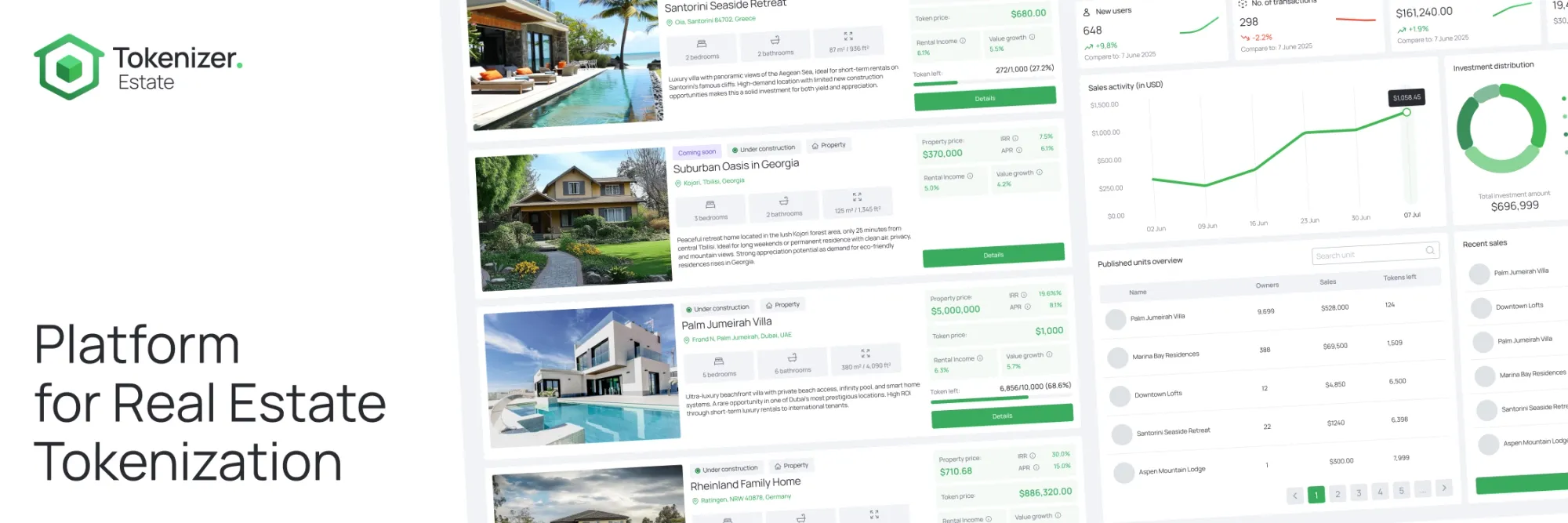
Tokenizer.Estate is a tokenization service provider that simplifies the process for entrepreneurs. We offer:
- Consulting and compliance. Our experts help structure offerings and navigate regulations.
- Technology platform. Use our white‑label software to list properties, manage tokens, and run secondary trading without starting from scratch.
- Marketing support. We help you reach investors worldwide and build trust through transparent reporting.
- Ongoing management. Our system automates rent distribution and handles KYC/AML checks, freeing you to focus on finding new opportunities.
By partnering with Tokenizer.Estate, you can launch a tokenization business quickly and safely. Our goal is to make real estate investing more democratic and profitable for everyone.
Conclusion
Real estate tokenization is moving from niche to mainstream. The world’s largest asset class is being digitized, bringing liquidity, transparency, and global access. Investors are willing to pay premiums for direct access to high‑quality real estate, and projected market growth indicates trillions of dollars of tokenized assets by the next decade. For entrepreneurs, running a tokenization platform is an opportunity to create a scalable digital business with multiple revenue streams—from listing fees to transaction fees and subscription plans.
Now is the time to explore this evolving industry. Whether you are a developer, property owner, or investor, tokenization offers new ways to earn, diversify, and participate in the global real estate market. With the right platform and partners, you can be at the forefront of this exciting transformation.

